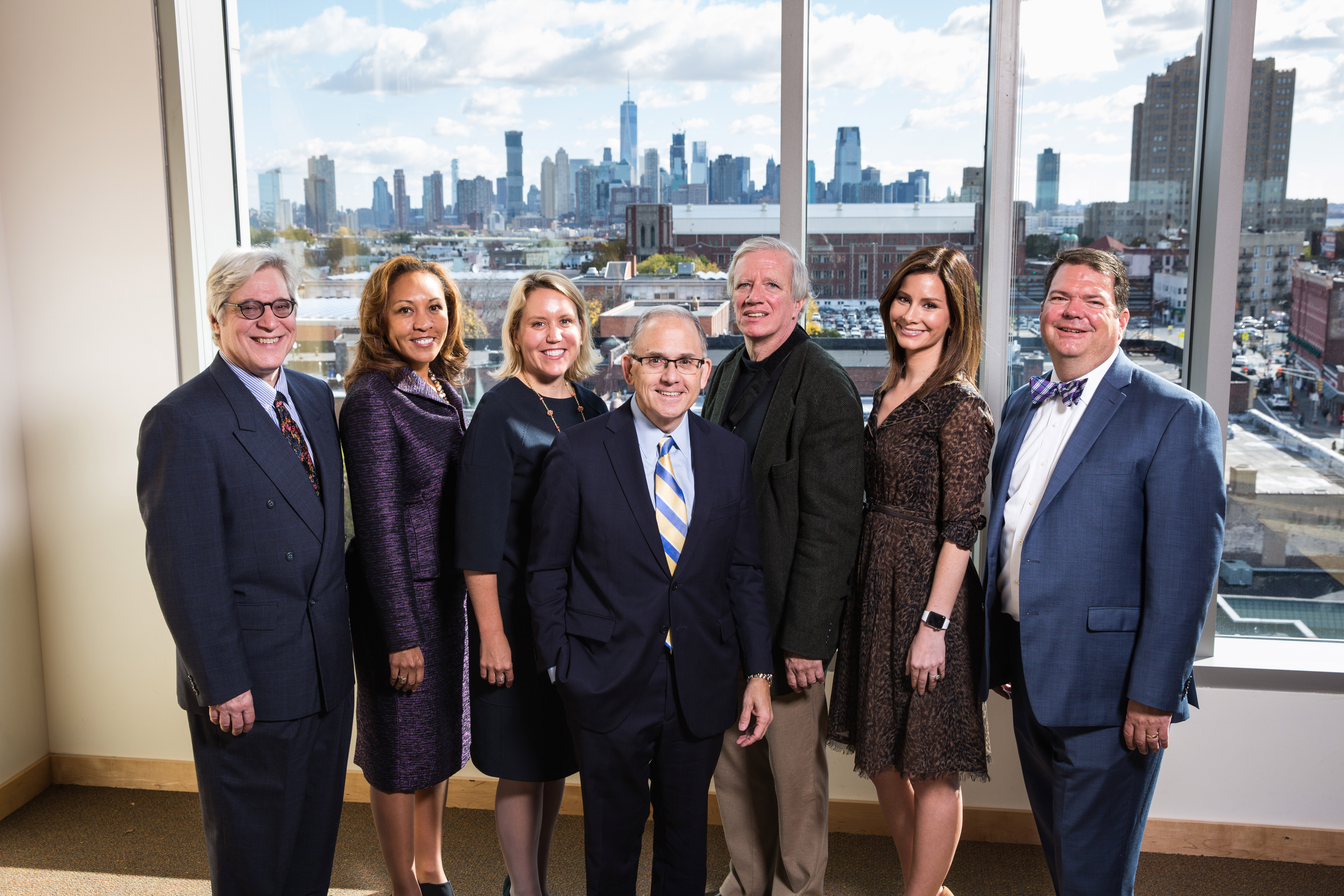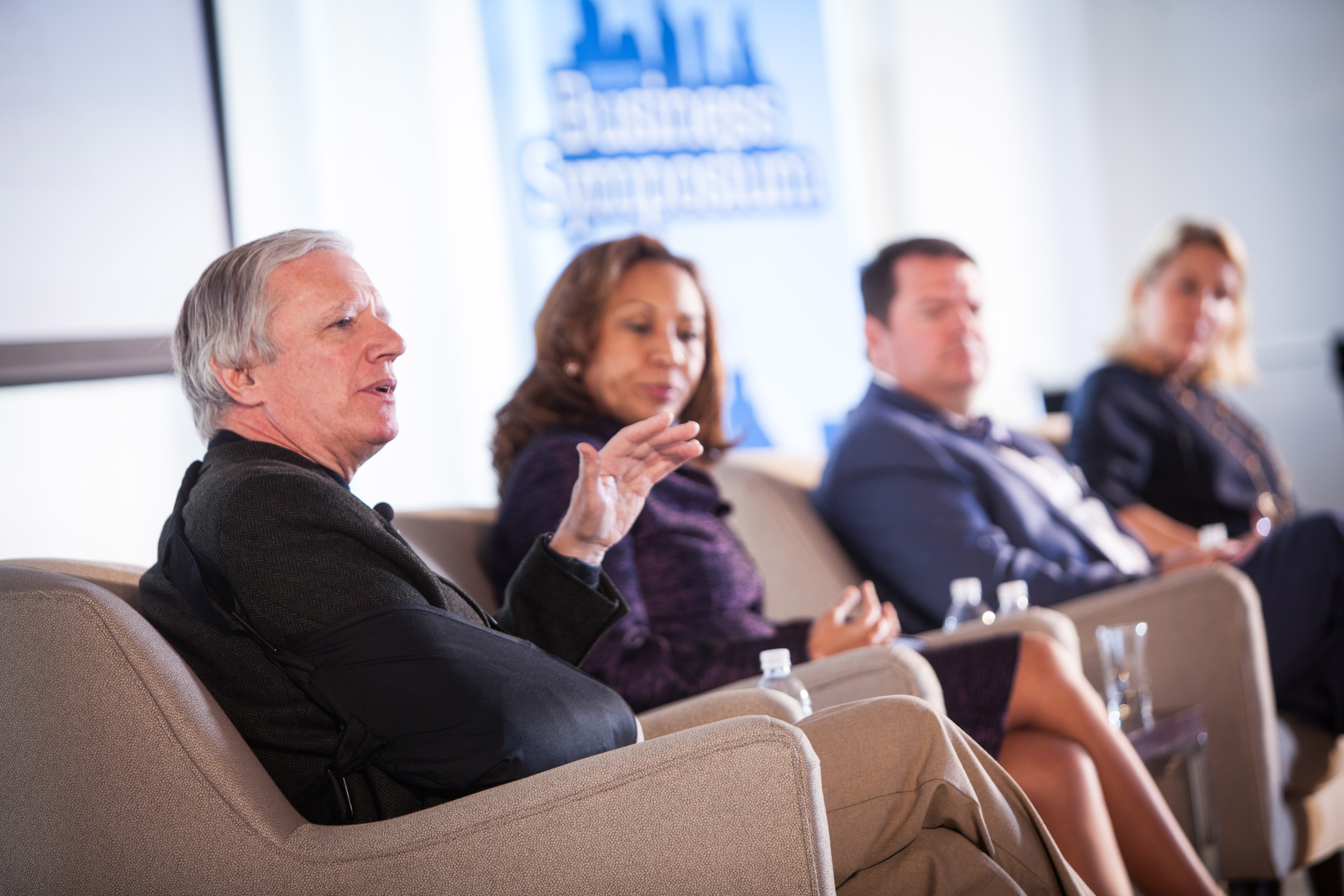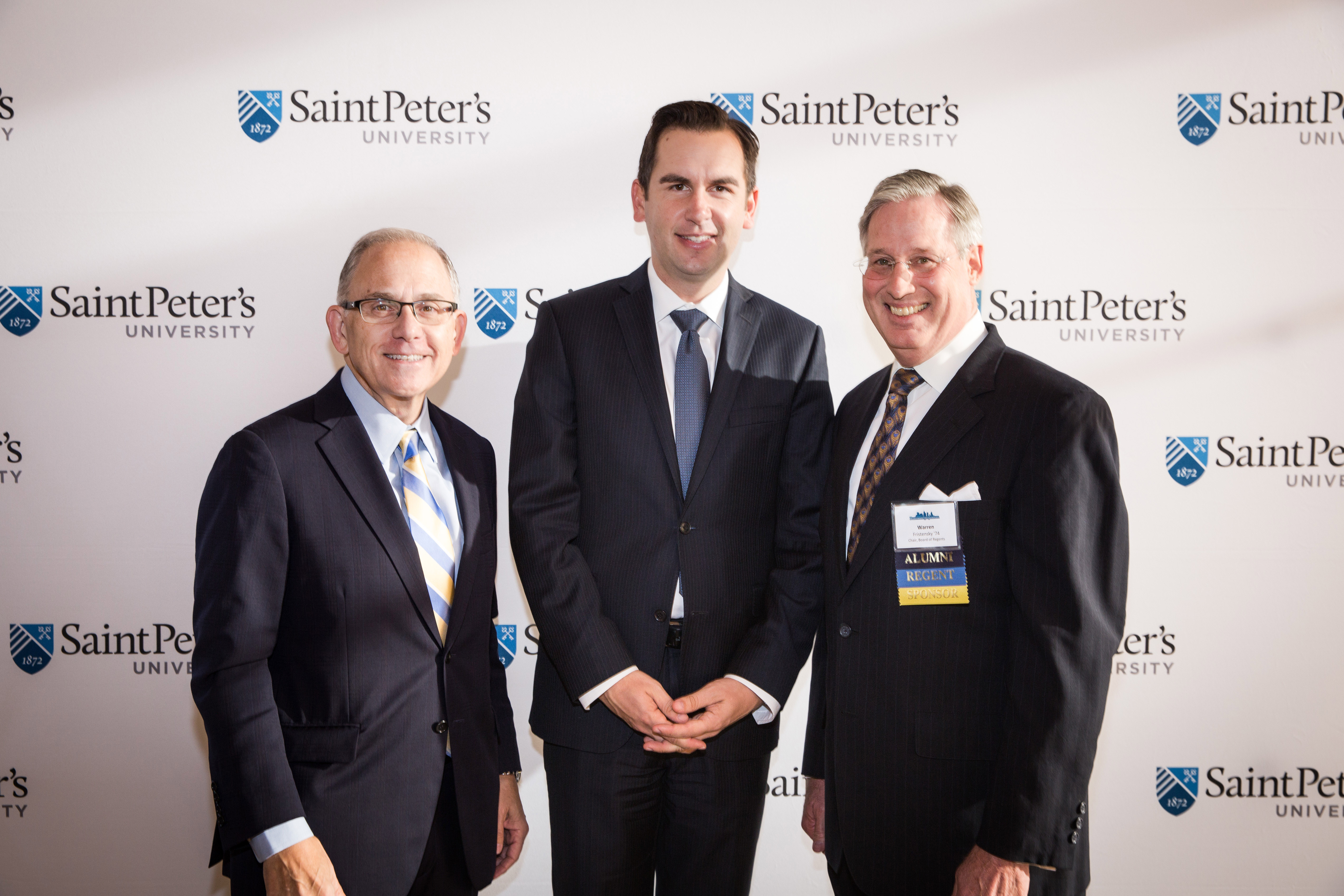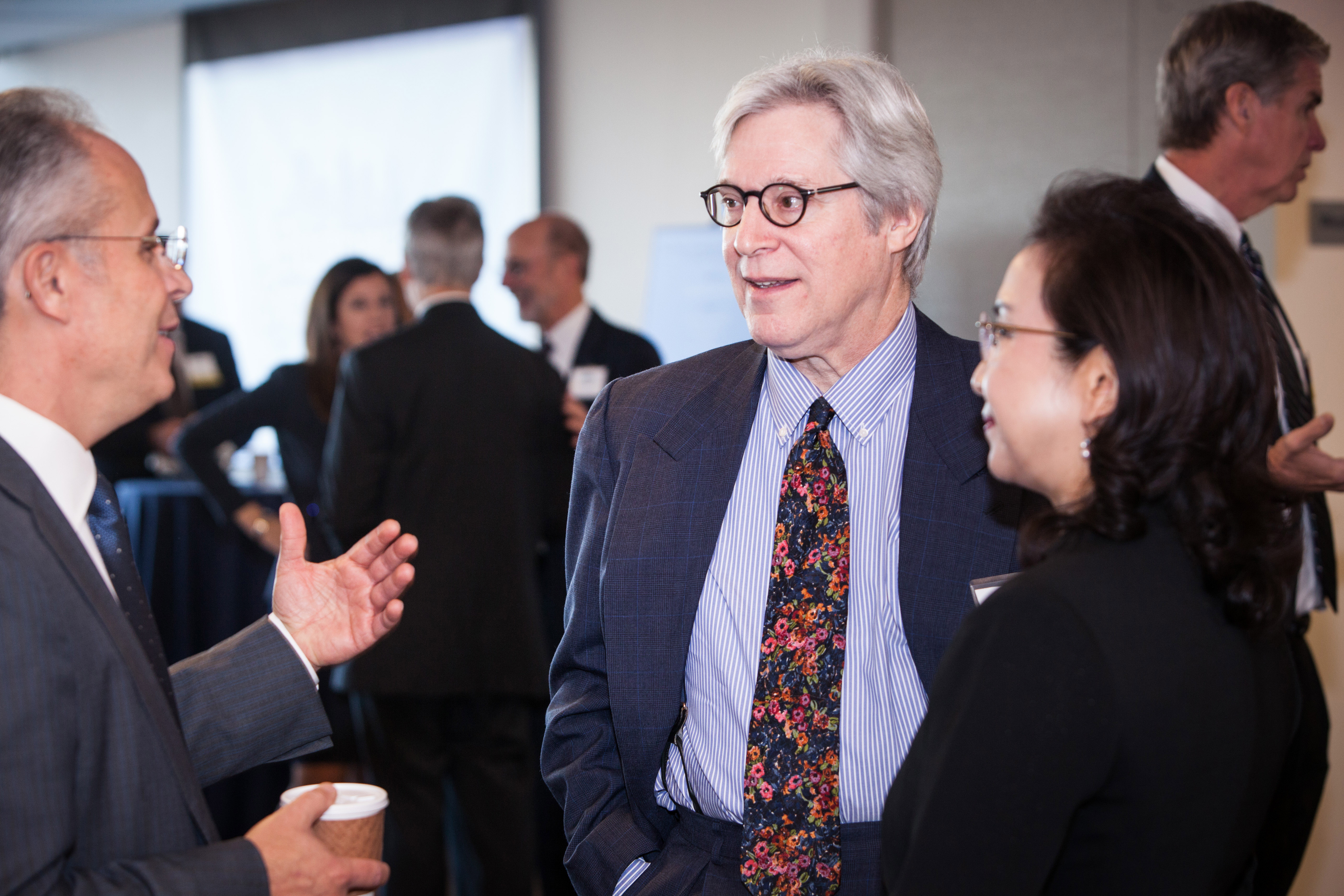For decades, business leaders have been asking, “How does this impact our bottom line,” but as organizations move toward a new era that focuses on sustainability and the importance of corporate social responsibility, protecting the environment and the welfare of employees, leaders have realized that an organization’s impact extends beyond its profitability and there is more than one bottom line to consider, in fact, there are three. Businesses must now evaluate the “triple bottom line,” which includes people, planet and profit.
Jersey City Mayor Steven Fulop H ’14 welcomed guests at the 45th Annual Regents Business Symposium (RBS) on November 4, where business leaders gathered in The Duncan Family Sky Room to explore business sustainability and the triple bottom line. “Saint Peter’s facilitates a great conversation between the public and private sector,” Fulop said in reference to events like the Business Symposium.
Eugene J. Cornacchia, Ph.D., president of Saint Peter’s University, echoed Mayor Fulop’s sentiments by showing a video that highlighted the University’s five-year strategic plan, Pathways to Distinction. The plan seeks to graduate students for careers and purposeful lives through teaching excellence, experiential learning and community engagement. “This is an invitation to all of the businesses in the audience. We cannot do this alone. As members of the business community, you hold the key to unlocking the full potential of our students,” said Dr. Cornacchia.
Rebecca Jarvis, ABC News chief business, technology & economics correspondent and host, creator and managing editor of Real Biz with Rebecca Jarvis, then kicked off the day as panel moderator.
“Businesses used to be able to cut costs, but that doesn’t work anymore,” she said. “Businesses have to make conscious decisions to use less water, recycle more and create less waste. Innovation and giving back to the community are current business trends.”
Bruce B. Rosenthal, M.B.A., Ph.D., KPMG founding dean of the Saint Peter’s University School of Business explored the topic further during his keynote address.
“The triple bottom line takes into account the impact of the business in terms of social and environmental value,” said Dr. Rosenthal. “Sustainability allows businesses to manage costs in the long term, it is not just about money, but what has the company done in terms of economic, social and environmental impacts. Has the company created value for society, the planet and business?”
Attendees of the event also heard real examples from business leaders. Panel participants included John Cusack, founder of Gifford Park Associates; Philip Henson, senior manager of energy and environmental sustainability at HanesBrands Inc.; Courtney McCormick, vice president of renewables and energy solutions at Public Service Electric & Gas Company; and Faith Taylor, senior vice president, global corporate responsibility at Wyndam Worldwide.
The people aspect of the triple bottom line refers to social justice issues such as income inequality, child labor, resource security, abuse of power and human rights violations, large-scale land acquisitions and food security concerns.
McCormick emphasized the fact that her company has many initiatives that are focused on people. “We provide comfort,” she said. For example, PSE&G has program that modulates heat in multifamily apartments.
According to the triple bottom line, companies now have to be concerned with the planet. This aspect refers to issues such as climate change and rapid human population growth. Taylor commented that turning a light off could show a quick return. Wyndham Worldwide takes many steps behind the scenes to conserve water and energy, and then customers can opt in to further resource saving initiatives.
Henson explained that at HanesBrands Inc., energy management not only helps the environment, but saves money. “Sustainability is not a destination but a journey; it is about reduction,” he said.
Lastly, when it comes to profit, investment in people and planet can have positive long-term impacts on the balance sheet. Cusack explained that sustainability fosters innovation. “We are investing in projects that have long-term benefits, it is not necessarily an immediate pay off,” he said. “Profit is now less about short term or next quarter results, but long term.”
See more photos from the event.






